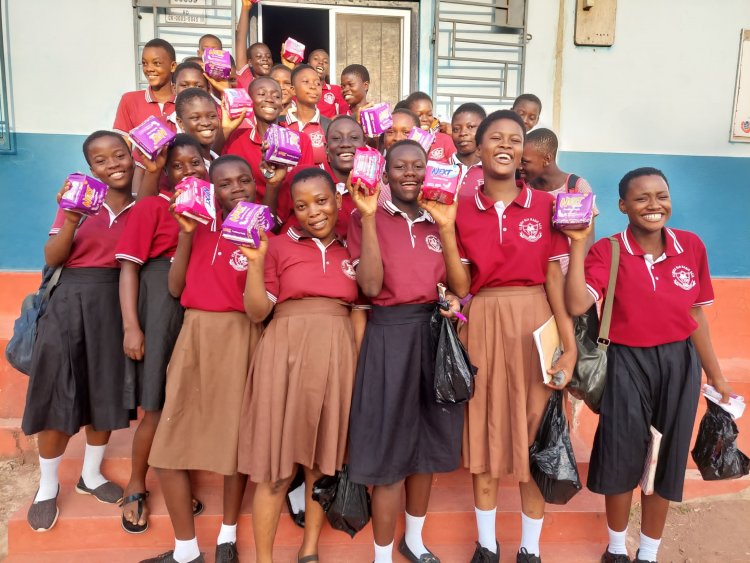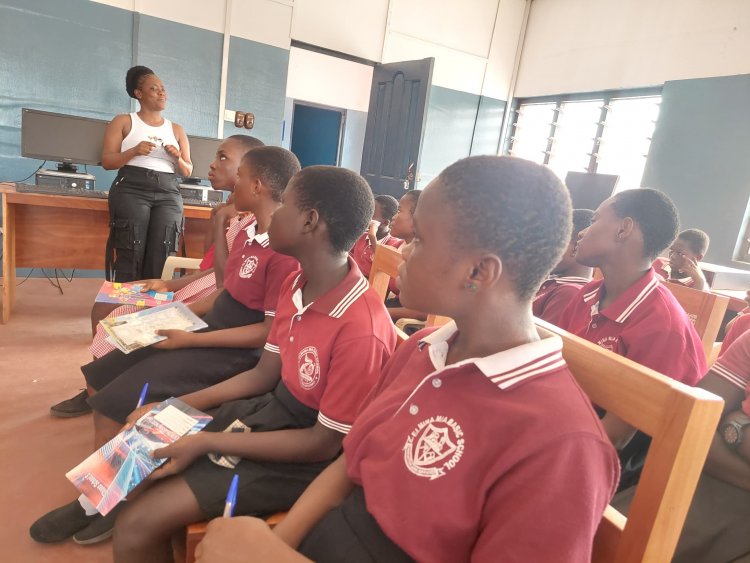Michael Kunke Foundation empowering women in KEEA to make informed decisions about their sexual wellbeing
The project, christened Women In Sexual Education (WISE), provides a comprehensive and culturally sensitive sexual education, health awareness and empowerment activities for women.

Michael Kunke Foundation (MKF), a not-for-profit organisation (NPO) in Ghana, has embarked on a project aimed at empowering women through education for their sexual wellbeing in the Komenda Edina Eguafo Abirem (KEAA) Constituency of the Central Region.

The project, christened Women In Sexual Education (WISE), provides a comprehensive and culturally sensitive sexual education, health awareness and empowerment activities for women.
With support from a philanthropist, Linda Davies and Tara Seright and Sarah Bynes, the project’s overarching goal is a world where women are confident and empowered through education to make informed decisions about their health, relationships and overall wellbeing.

Speaking to the media, the Women's Health Education and Empowerment Coordinator in charge of the WISE project, Theodora Asamoah, said the project is being implemented in phases.
The first phase, she indicated, was from January to March, representing quarter one. In view that, she said the Foundation on February 16, 2024, organised a health education activity for females at the Elmina M.A. Basic School in Elmina, Central Region.
She said among the topics discussed included common menstrual disorders and solutions and significance of women health education.
Thirty-three (33) pupils (all girls) of Elmina M.A. Basic School participated in the health education activity, with each participant receiving two packs of sanitary pads.
Theodora Asamoah disclosed that the Foundation will be organizing two more sessions within the Agona Circuit of the KEEA before the end of quarter one.
According to her, to better understand the sexual education and health of Junior High Schools’ (JHSs) girls in the KEEA, the Foundation did a survey.
She explained that the survey examined the multiple critical facts of adolescent life and offered deep insights into their experiences and needs.
She said the survey found that a significant number of the respondents within the age bracket of 12-15 indicated a lack of engagement in sexual activities, with about 82% reporting no sexual experiences.
However, the coordinator of the WISE project said the survey showed that 73% of the respondents averred that gender-based harassment (including unwanted advances and inappropriate touching by adult males were pervasive issues in both the schools and the homes).
In examining menstrual hygiene practices, the survey found a prevalent preference for sanitary pads among the participants, with 61% indicating their primary use.
“However, disparities in access to menstrual hygiene products were evident, with some girls relying on parental support (58%) while others were responsible for procuring products themselves (21%),” the survey indicated.
Furthermore, Theodora Asamoah said the survey revealed a striking prevalence of mobile phone ownership among participants, with smartphones emerging as the predominant device, constituting 50% of respondents' ownership.
Against the backdrop of the survey findings, the WISE project coordinator said: “our survey underscores the imperative for tailored sexual education programs that cater to the diverse needs and challenges faced by adolescent girls.”

 Freeman Koryekpor
Freeman Koryekpor 



































